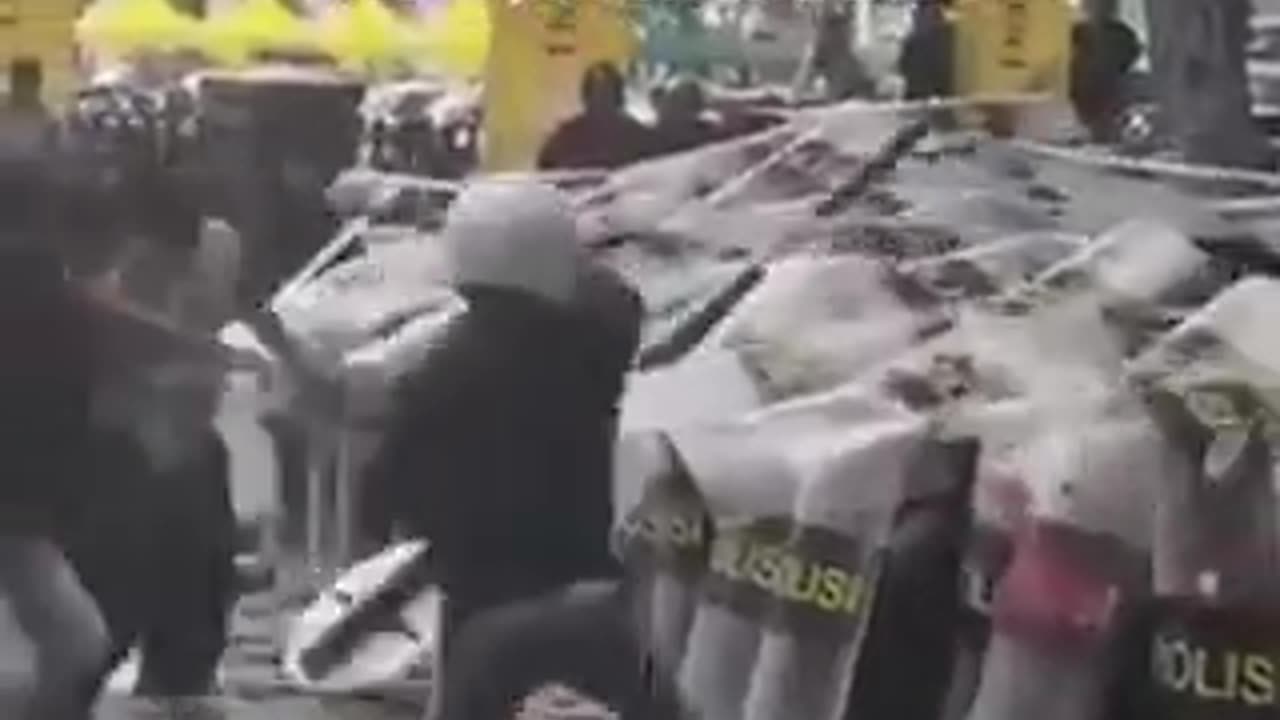Premium Only Content

breaking news Indonesian protest
Recent protests in Indonesia, starting around August 25, 2025, have been driven by widespread frustration over economic hardships, government policies, and police brutality. Here's a concise overview based on available information:
Causes of the Protests:
Economic Grievances: Protesters, including students and workers, are angered by rising inflation, stagnant wages, and a cost-of-living crisis. A key trigger was a proposed housing allowance for lawmakers (50 million rupiah, ~$3,000/month), nearly 10 times Jakarta’s minimum wage, seen as tone-deaf amid austerity measures cutting education, health, and public works budgets.
Police Brutality: Tensions escalated after a 21-year-old motorcycle taxi driver, Affan Kurniawan, was killed on August 28, 2025, when a police armored vehicle ran him over during a protest in Jakarta. Viral footage of the incident fueled nationwide outrage, with demands for police reform and accountability.
Political Discontent: Demonstrators criticize “corrupt elites” and policies favoring conglomerates and the military, including a revised law expanding military roles in civilian positions. Some protests also targeted insensitive remarks by parliamentarians.
Key Events:
Spread of Protests: Starting in Jakarta, demonstrations spread to cities like Bandung, Yogyakarta, Makassar, Surabaya, Medan, and others. Protesters torched government buildings, looted lawmakers’ homes, and clashed with police, who used tear gas, water cannons, and rubber bullets. At least eight people died, including three trapped in a fire in Makassar and a student in Yogyakarta. Over 1,200 were detained in Jakarta alone, with damages estimated at $3.3 million.
Government Response: President Prabowo Subianto, facing his biggest challenge since taking office in October 2024, canceled a trip to China and announced concessions on August 31, including cutting lawmakers’ housing allowances and overseas trips. He also ordered “firm action” against rioters, labeling some actions as “treason” or “terrorism,” raising concerns about authoritarian measures. Seven police officers involved in Kurniawan’s death were suspended for ethics violations, with two facing potential criminal charges.
Security Crackdown: By September 1, police set up checkpoints across Jakarta, deployed armored vehicles, and increased military presence, prompting some groups to cancel protests due to “impossible conditions.” TikTok suspended its live feature to curb inflammatory content.
Public Sentiment and Impact:
Protests reflect deep frustration with inequality, governance, and lack of transparency. The hashtag #PolisiPembunuhRakyat (#PoliceThePeoplesKiller) trended on X, and symbols like the Straw Hat Pirates’ Jolly Roger flag emerged as opposition markers.
Financial markets were rattled, with Indonesia’s stock index dropping over 3% and the rupiah weakening. The unrest is seen as the worst since the 1998 riots that ended Suharto’s rule.
Ongoing Concerns:
Human Rights Watch and the UN criticized the government’s use of excessive force, calling for investigations. At least 20 people remain missing, per the Commission for the Disappeared and Victims of Violence.
Analysts warn that while concessions address some demands, deeper issues like economic inequality and police reform remain unresolved, potentially fueling further unrest.
-
 LIVE
LIVE
The Bubba Army
20 hours agoImmigrant Trucker KILLS Again! - Bubba the Love Sponge® Show | 10/23/25
3,280 watching -
 LIVE
LIVE
Side Scrollers Podcast
3 days ago🔴FIRST EVER RUMBLE SUB-A-THON🔴DAY 3🔴WAKE YOUR ASS UP!
1,310 watching -
 19:16
19:16
Jasmin Laine
15 hours agoCBC Gets FACT-CHECKED By Guest—Carney BEGS Poilievre For Help
10.1K10 -
 8:50
8:50
The Shannon Joy Show
13 hours agoBREAKTHROUGH Cancer Treatments With Dr. Makis
2.96K2 -
 9:10
9:10
Faith Frontline
12 hours agoMatthew McConaughey Just Said What No Celebrity Dares to About Jesus
3.46K2 -
 27:03
27:03
Take FiVe - His Glory
1 day agoEp 2112: Sam Anthony: How Citizen Journalism is Replacing Legacy Media | Take Five
9.79K2 -
 10:01
10:01
Breaking Points
18 hours agoKJP GASLIGHTS On Biden's Age In BONKERS Book Tour
5.66K1 -
 11:31
11:31
Nate The Lawyer
15 hours ago $0.95 earnedJohn Bolton Indictment Explained | Even MSNBC Says He Is in BIG Trouble!
11.4K2 -
 25:46
25:46
DeVory Darkins
1 day ago $12.19 earnedICE raid erupts into chaos when protestors targeted ICE Agents as ABC suffers disastrous interview
20.7K30 -
 6:06
6:06
Congressman Eli Crane
20 hours agoThe "Affordable" Care Act | Democrats' Greatest Lies – Vol. 3
6.87K3